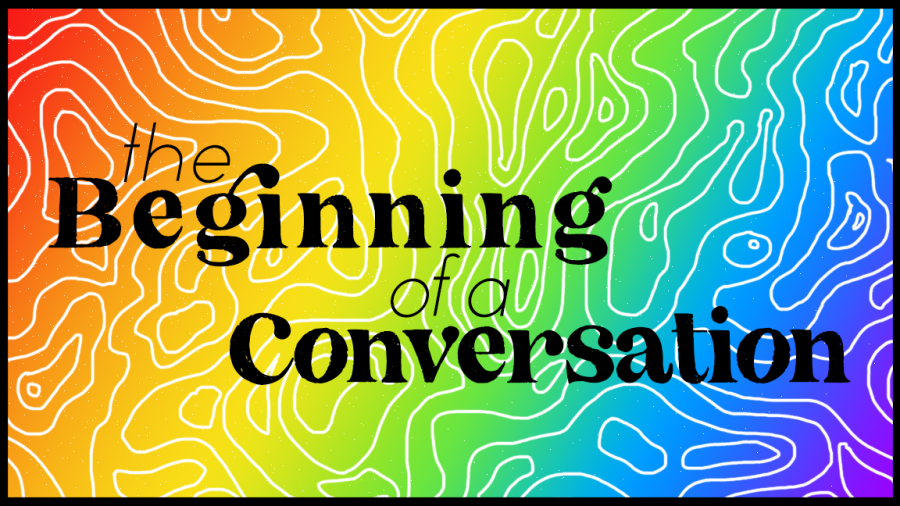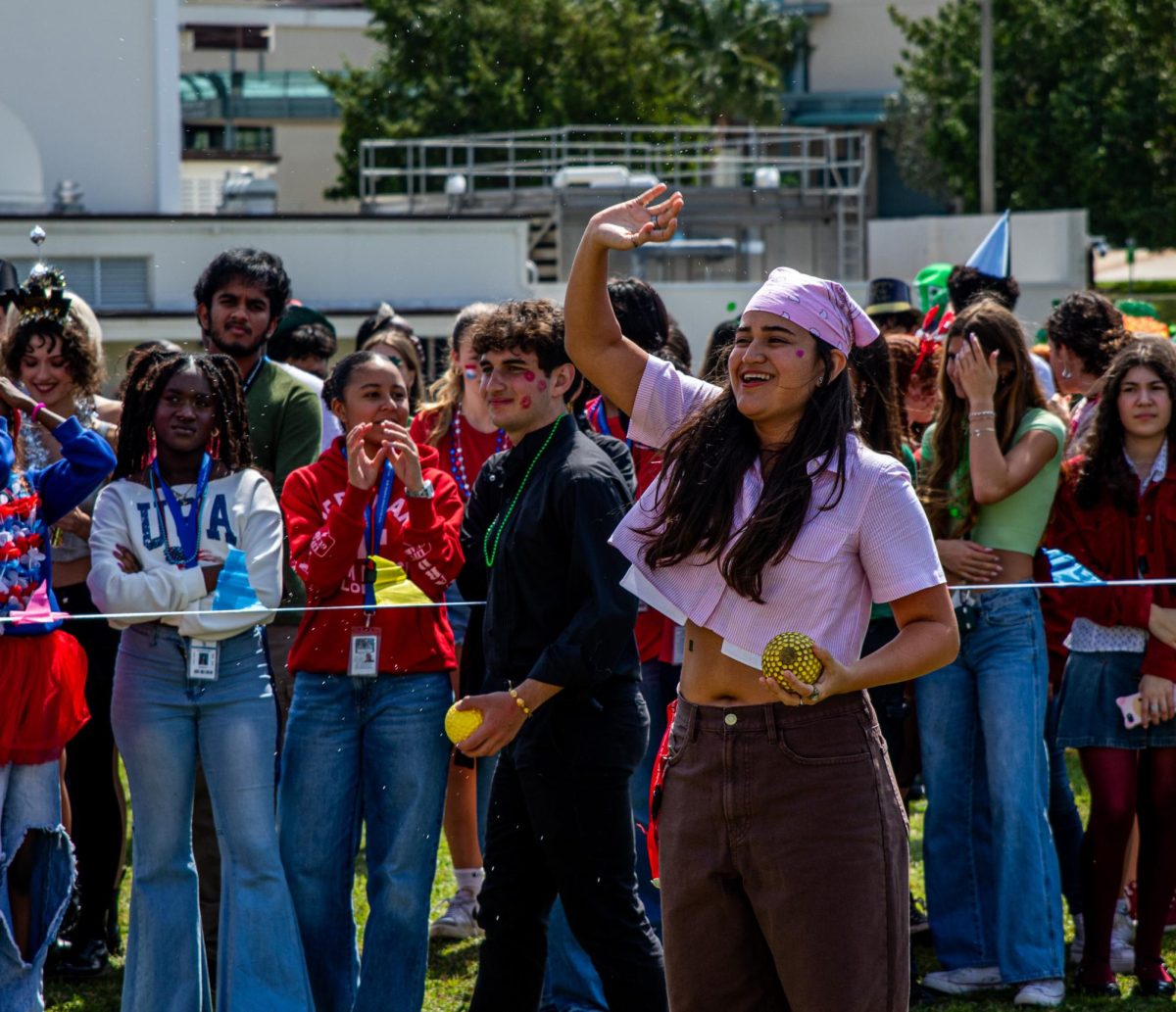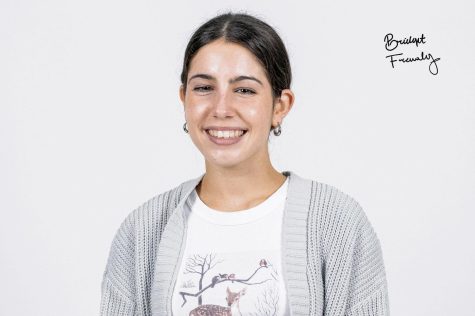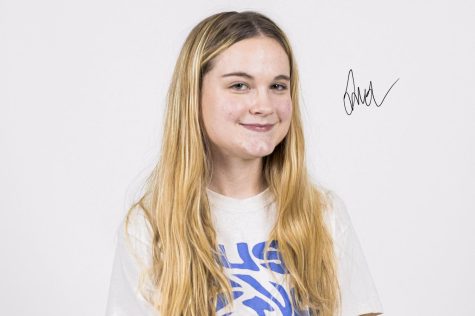At first, we were expecting a PowerPoint presentation. As students and school board members trickled into the Google Meet, we prepared ourselves for someone to present their screen and drone on uninterrupted while several lettered icons gazed back at the speaker.
That is not what happened. Instead, students joined with their cameras on, showing glimpses of pride banners hanging in their rooms, brightly decorated walls, and excited faces. This was not going to be a typical after-school meeting.
On Feb. 10, from 5:30 to 7:00 p.m., School District Superintendent Dr. Donald Fennoy and District 4 School Board Member Erica Whitfield hosted a meeting to discuss topics regarding LGBTQ+ youth in the school system. The meeting consisted of 38 attendees, including members of Compass, an organization based in Lake Worth that provides a safe haven for LGBTQ+ youth and allies.
“I think a lot of the time there isn’t an avenue for students to share what they’re experiencing day to day, and especially LGBTQ students who come from a marginalized community,” Compass Youth Program Director Amanda Canete said. “Being able to validate the experiences they went through, have people say ‘that’s not okay,’ or ‘this shouldn’t have happened to you’ is important and impactful, so we can make it a safe environment for students.”
Before the conversation delved into personal experiences, students were asked to fill out a poll with questions such as what type of school they attend, how they would describe their school experience, and if teachers use their preferred pronouns. A question that sparked an immense discussion was, “Have you ever had sex education in school?” with a majority of students saying that while they did have sex ed courses, it only discussed heterosexual relations.
“[A lack of LGBTQ+ sex education] definitely raises the issue of unsafe and unprotected sex once students get to that point,” an anonymous student said. “There’s also the fact that [LGBTQ+ students] feel like their experiences aren’t as valid as heterosexual students’.”
The poll led students to volunteer in the chat and share their individual experiences with the lack of acceptance and understanding towards members of the LGBTQ+ community. There was a sense of rawness and vulnerability in the students’ stories, accompanied by words of support and validation.
“I was called a rapist on multiple occasions for liking women,” an anonymous student said during the meeting. “When I was openly in a gay relationship with a girl, I was stalked by people who watched us throughout the school day without our permission or our knowledge until we broke up … With the sex education, it was never inclusive. It would only be heterosexual relationships, and from the way I saw how other LGBT students are being treated … it was hard to speak up about the bullying and be honest about it.”
One student after another came forward with their experiences. Students from all over the county, and even one from New York, described instances of bullying, harassment, and disrespect toward their sexualties and genders not only from fellow students, but from teachers as well.
“It was honestly eye-opening,” strings junior Liam Jackson, who attended the meeting, said. “I knew [bullying] was happening, but I didn’t know to the extent of how people [were] actually treated.”
Towards the end of the meeting, Dr. Fennoy proposed another meeting in a few months to further cultivate growth and awareness of the challenges students of the LGBTQ+ community experience. Dr. Fennoy also highlighted his appreciation towards the students in attendance for helping him to become more educated as well.
“I’m an advocate for all kids, and I think as we continue to learn and evolve as a country and as an organization, a conversation like this is very important to me so that we can hear all the voices and figure out a way to get better,” Dr. Fennoy said during the meeting. “This whole world is changing on us, but we have a responsibility to be good stewards of all of your concerns. My goal today is for this to be the beginning of a conversation; I do not want this to be the last time we have a conversation.”
It is clear that this is only the beginning. The experiences shared by the students are proof that there is much more work to do in terms of LGBTQ+ education, but having these discussions will make reform much easier. As such, many of the attendees expressed optimism for the future.
“Dr. Fennoy has a whole different vocabulary he’s working with,” said Donalda McCarthy, Jupiter Middle School eighth grade history teacher and founder of the school’s Gay-Straight Alliance (GSA). “He voiced one of the most important things that a potential ally can voice: ‘I don’t know, tell me more’ and that’s where we need to get our administrators to be. Once we start normalizing language and being okay with ‘I don’t know, tell me more,’ that will seep into the student body and thus into the community as a whole.”
More schools throughout Palm Beach County, including Dreyfoos, have established GSA clubs that are promoting acceptance within campuses.
“Dreyfoos is, for the most part, a very accepting school, but sadly, other schools around the community, and other students don’t have the same experience we have,” a student who wishes to remain anonymous said. “It’s incredibly important for LGBTQ+ students to feel just as accepted as straight students. The only difference between those two groups is just who we love, and that’s not something that we should have to feel discriminated against or left out for.”
Some of the improvements proposed at the meeting included creating an Office of Equity within the Palm Beach County School Board, incorporating more LGBTQ+ history into school curriculums, and providing teachers with more ways to keep informed about LGBTQ+ topics and terminology. Though all the district official attendees could agree that opening the floor for these discussions was the perfect place to start.
“This is historical,” said William Rizzo, an eighth grade social studies teacher at Polo Park Middle School. “You kids accomplished something tonight: awareness. It is so important for teachers and staff and the school board to know what is going on and it was accomplished tonight. I can’t wait to see this balloon the same way that my GSA club did. We went from 10 kids to 40 overnight. I’m always trying to get more and more kids to join virtually … I wish we had recorded this so I could play it back for my students because they ask questions like this every single time we meet.”
For anyone who is struggling, Erica Whitfield and Amanda Canete encouraged students to email them or visit the Compass website for resources on how to help. You can also reach out to the Dreyfoos GSA (@dsoagsa on Instagram) to join a community of people with similar experiences on campus.


























































![[BRIEF] The Muse recognized as NSPA Online Pacemaker Finalist](https://www.themuseatdreyfoos.com/wp-content/uploads/2025/03/IMG_2942.jpeg)

